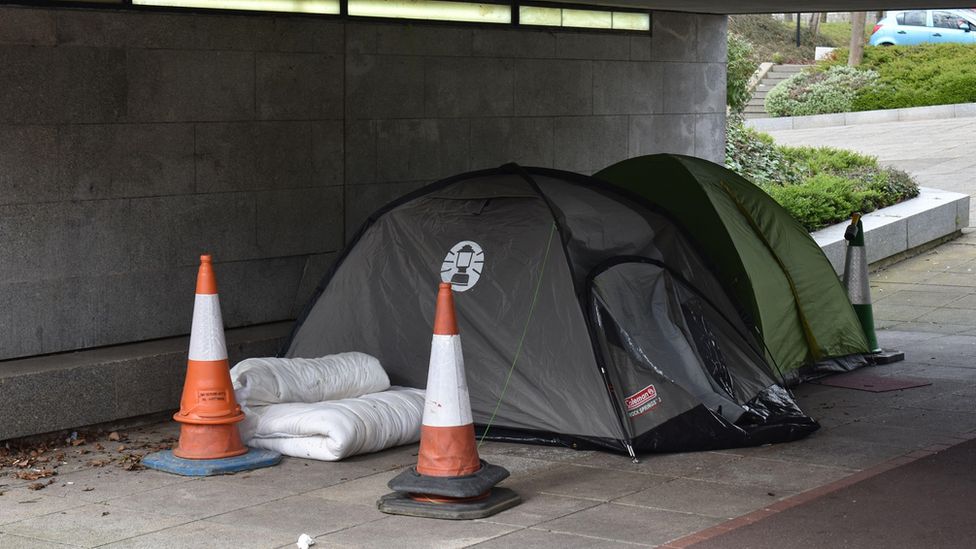-

-
-
Loading

Loading

Milton Keynes was originally built in the 1960s to address housing shortages in London, but now the city itself is grappling with its own housing crisis. Referred to as "tent city" by the media due to the presence of rough sleepers in the city center, Milton Keynes saw an estimated 48 people sleeping rough in 2017. However, that number has now decreased to just 16, according to the local council. While the number of rough sleepers is rising across England, Milton Keynes appears to be an exception. This issue gained attention when Home Secretary Suella Braverman claimed that some people chose to live on the streets as a lifestyle choice. Her remarks faced criticism from homelessness charities and some members of the Conservative party. Braverman has suggested limiting the use of tents by rough sleepers, including issuing fines to those who refuse to move from shop doorways or penalizing charities that supply tents. However, Emily Darlington, a Labour councillor in Milton Keynes, believes that tents are merely a symptom of the problem rather than the cause. She argues that people resort to sleeping in tents because public services and the voluntary sector have failed them. In Milton Keynes, the focus has been on bringing emergency beds and support services together in one location to prevent individuals from falling through the cracks. During the pandemic, the government provided funding to councils across England to accommodate rough sleepers in hotels temporarily. While the initiative was praised, concerns were raised that many people did not find permanent homes. To address this, Milton Keynes Council opened its own shelter for rough sleepers in April 2022 at the city's old bus station. The shelter offers emergency beds for up to 19 people each night and provides access to healthcare, addiction services, and mental health support on the ground floor. Charities also assist with tasks like setting up bank accounts, accessing benefits, finding housing, and providing basic amenities. While challenges remain, the shelter has helped 145 people secure long-term accommodation since its opening. However, there are still individuals sleeping rough in Milton Keynes, many of whom face significant obstacles related to addiction or mental health. The council continues to work with outreach workers to support these individuals, without forcing them into programs before they are ready. Johnny Luk, Conservative parliamentary candidate for Milton Keynes Central, expressed cross-party support for the efforts to tackle homelessness locally. He credited government funding, amounting to over £10 million since 2019, as crucial in making progress. Downing Street stressed the importance of providing support to vulnerable individuals without criminalizing homelessness or tolerating anti-social behavior. Emma Johnson, the general manager of homelessness charity UnityMK, emphasized the significance of partnerships between voluntary organizations and the council in addressing rough sleeping. However, she expressed concern about an increase in demand from rough sleepers and those facing homelessness or residing in temporary accommodation. According to Shelter, the number of people living in temporary accommodation in Milton Keynes is among the highest in England. An independent commission has determined that the government will not meet its target to end rough sleeping by 2024 due to a lack of affordable housing, inadequate support services, and the rising cost of living. Johnson believes that there will always be individuals experiencing homelessness, and the focus should be on promptly providing assistance to pick them up off the streets.